Discover the Women of the Hall
These are the Inductees of the National Women’s Hall of Fame. Select any of the women to discover their stories and learn how they have influenced other women and this country.
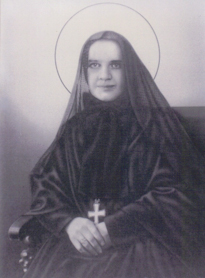 St. Frances Xavier Cabrini
Humanities
1850
Italy
1996
St. Frances Xavier Cabrini
Humanities
1850
Italy
1996

St. Frances Xavier Cabrini
Established orphanages, day care centers, schools, clinics and hospitals for immigrants in the United States and around the world. She established a missionary order of women and was the first American citizen to be canonized a saint.
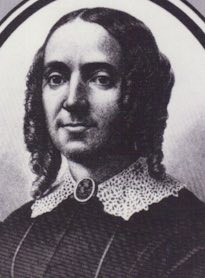 Ernestine Louise Potowski Rose
Humanities
1810
1996
Ernestine Louise Potowski Rose
Humanities
1810
1996

Ernestine Louise Potowski Rose
Early advocate for women’s rights, traveling for more than three decades giving eloquent speeches and seeking petition signatures. Rose sought women’s rights, the abolition of slavery and many other reforms before others took up the causes. From 1835 through 1869, she was often the first woman to speak in public on many platforms.
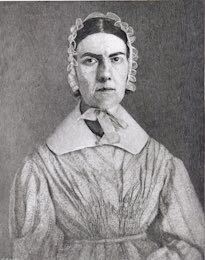 Angelina Grimké Weld
Humanities
1805
South Carolina
1998
Angelina Grimké Weld
Humanities
1805
South Carolina
1998

Angelina Grimké Weld
Along with Sarah Grimké, wrote numerous published papers which championed abolition and women’s rights. The Grimké sisters were southerners who became the first female speakers for the American Anti-Slavery Society. Sarah’s Letters on the Equality of the Sexes exposed the plight of factory women in New England, as well as arguing on behalf of women’s rights and abolition. Through their examples and their words, the Grimkés proved that women could affect the course of political events and have a far-reaching influence on society.
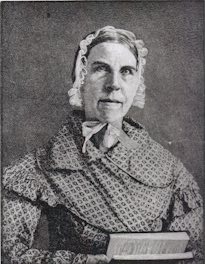 Sarah Grimké
Humanities
1792
South Carolina
1998
Sarah Grimké
Humanities
1792
South Carolina
1998

Sarah Grimké
Along with Angelina Grimké Weld, who wrote numerous published papers which championed abolition and women’s rights. The Grimké sisters were southerners who became the first female speakers for the American Anti-Slavery Society. Sarah’s Letters on the Equality of the Sexes exposed the plight of factory women in New England, as well as arguing on behalf of women’s rights and abolition. Through their examples and their words, the Grimkés proved that women could affect the course of political events and have a far-reaching influence on society.
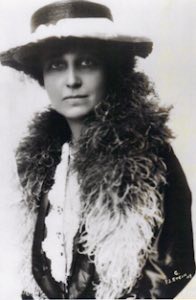 Katharine Dexter McCormick
Humanities, Philanthropy
1875
Michigan
1998
Katharine Dexter McCormick
Humanities, Philanthropy
1875
Michigan
1998

Katharine Dexter McCormick
Co-founder (with Carrie Chapman Catt) of the League of Women Voters in 1920, after ratification of the 19th Amendment. A graduate of MIT in 1904, she funded MIT’s first on-campus residence for women. She devoted her late husband’s wealth to contraceptive research and her own resources and energy to opening up doors for women in science and engineering.
 Julia Ward Howe
Humanities
1819
New York
1998
Julia Ward Howe
Humanities
1819
New York
1998

Julia Ward Howe
Suffragist and author of “Battle Hymn of the Republic.” Howe was a lecturer on religious subjects, a playwright and an organizer of a women’s peace movement. Co-founder (with Lucy Stone et al) of the New England Women Suffrage Association, she lectured and wrote extensively in support of the freedom of women to have an equal place with men in both public and private life.
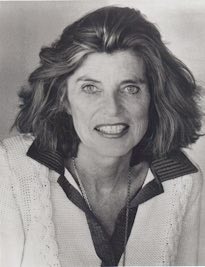 Eunice Kennedy Shriver
Humanities
1921
Massachusetts
1998
Eunice Kennedy Shriver
Humanities
1921
Massachusetts
1998

Eunice Kennedy Shriver
For more than thirty years, Eunice Kennedy Shriver served as a leader in the worldwide struggle to enhance the lives of people with intellectual disabilities. Under her leadership, the Joseph P. Kennedy, Jr. Foundation aided in the creation of The President’s Committee on Mental Retardation (1961) and the development of the National Institute for Child Health and Human Development (1962). Shriver is credited as the founder of the Special Olympics, an organization that today serves 3 million people with intellectual disabilities in nearly 200 nations around the world.
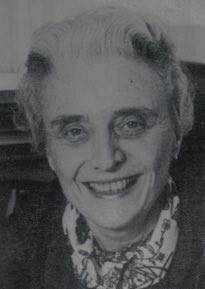 Mary Steichen Calderone
Education, Humanities
1904
France
1998
Mary Steichen Calderone
Education, Humanities
1904
France
1998

Mary Steichen Calderone
Pioneering sex educator and acknowledged “mother of sex education.” She established the Sex Information and Education Council of the United States, which established sexuality as a healthy entity. Dr. Calderone was President of the SIECUS board, as well as author and co-author of several books, professional journals and magazine articles.
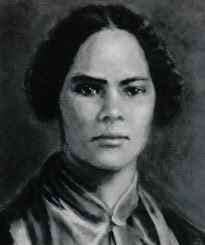 Mary Ann Shadd Cary
Humanities
1823
Delaware
1998
Mary Ann Shadd Cary
Humanities
1823
Delaware
1998

Mary Ann Shadd Cary
An educator and abolitionist, Mary Ann Shadd Cary was the first Black American woman to enroll in and graduate from Howard University Law School. She appeared before the House Judiciary Committee to argue for the right of women to vote (with Anthony and Stanton). During the 1870s, while practicing law, she lectured throughout the United States about the improvement of education for Black Americans.
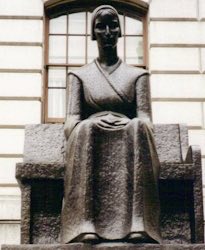 Mary Barret Dyer
Humanities
0
England
2000
Mary Barret Dyer
Humanities
0
England
2000

Mary Barret Dyer
Disenfranchised and banished from the Massachusetts Bay Colony along with Anne Hutchinson, she moved back to England, where she became a protégé of George Fox, the founder of Quakerism. Returning to Boston, she was arrested, imprisoned and expelled for preaching the Quaker faith. Returning to Boston again and again, she stood beside other condemned Quakers and finally was herself arrested and hanged. Her martyr’s death contributed to the move for religious tolerance in the colonies.
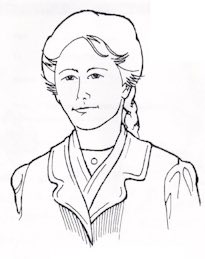 Kate Mullany
Humanities
1845
2000
Kate Mullany
Humanities
1845
2000

Kate Mullany
Founder and organizer of the Collar Laundry Union in 1864, she led a strike of 200 laundresses in Troy, NY, which resulted in a 25% wage increase and improvement of working conditions. Her efforts to organize women in New York City and financially assist both male and female unions were rewarded when she was appointed as an assistant secretary of the National Labor Union, making her the first female to hold a national labor post.
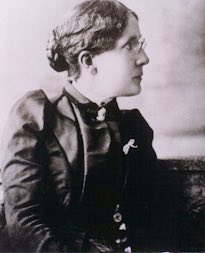 Frances E. Willard
Humanities
1839
New York
2000
Frances E. Willard
Humanities
1839
New York
2000

Frances E. Willard
As second president of the Women’s Christian Temperance Union (WCTU), she led the largest organization of women in the United States. The WCTU provided a base for the 20th century women’s rights movement, supporting, in addition to women’s suffrage, broad social reforms such as equal pay for equal work, the eight hour day, and the protection of women and children in the workplace.
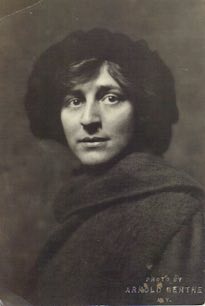 Crystal Eastman
Humanities
1881
Massachusetts
2000
Crystal Eastman
Humanities
1881
Massachusetts
2000

Crystal Eastman
One the major leaders of the women’s right to vote and equal rights movements, she was co-founder of the American Civil Liberties Union and author of the first national labor safety law guidelines. In 1919, she organized the First Feminist Congress, and she was one of the four authors of the Equal Rights Amendment proposed in 1923.
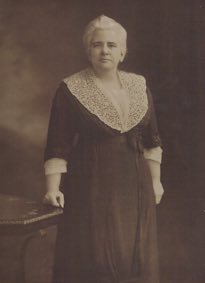 Anna Howard Shaw
Humanities
1847
England
2000
Anna Howard Shaw
Humanities
1847
England
2000

Anna Howard Shaw
A leader in the women’s suffrage movement, Shaw was a master orator for social justice, and the first woman to be ordained by the Protestant Methodist Church. She was the first living American woman to be awarded the U.S. Distinguished Service Medal.
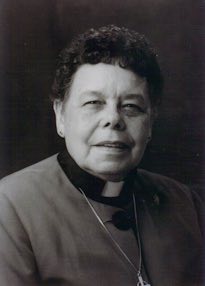 Leontine T.C. Kelly
Humanities
1920
District of Columbia
2000
Leontine T.C. Kelly
Humanities
1920
District of Columbia
2000

Leontine T.C. Kelly
A Methodist bishop, Leontine T.C. Kelly was the first African American woman to be elected bishop in the United Methodist Church. She served as bishop of the California-Nevada Annual Conference and the president of the Western Jurisdiction College of Bishops. Committed to peace and justice, she was arrested several times for protesting nuclear weapons, and was one of 18 bishops who signed a letter to the Methodist Church in response to its policy toward gays and lesbians in the church.
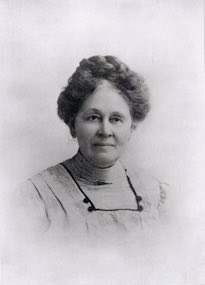 Emma Smith DeVoe
Humanities
1848
Illinois
2000
Emma Smith DeVoe
Humanities
1848
Illinois
2000

Emma Smith DeVoe
President of the Washington Equal Suffrage Association, successfully ran the campaign that resulted in Washington becoming the first state in the 20th century to grant full enfranchisement to women in 1910, a full decade before passage of the 19th Amendment. DeVoe established the first national organization of voting women, which eventually merged with the National League of Women Voters, leaving an invaluable legacy about the importance of the educated use of the franchise.
 Dorothy Day
Humanities
1897
New York
2001
Dorothy Day
Humanities
1897
New York
2001

Dorothy Day
Widely considered one of the great Catholic lay leaders of the 20th century. As co-founder of The Catholic Worker, Day spearheaded the movement that continues to promote pacifism, civil rights, and relief for the homeless.
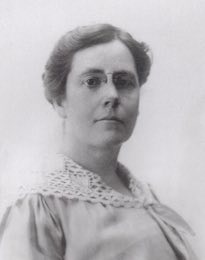 Marian de Forest
Arts, Humanities
1864
New York
2001
Marian de Forest
Arts, Humanities
1864
New York
2001

Marian de Forest
Founder of Zonta (1919, Buffalo, NY), a worldwide organization of women business and professional leaders dedicated to improving the legal, political, and economic status of women. Membership now runs 35,000 with 1,214 clubs in 68 countries.
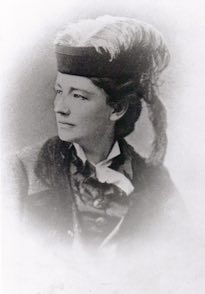 Victoria Woodhull
Humanities
1838
Ohio
2001
Victoria Woodhull
Humanities
1838
Ohio
2001

Victoria Woodhull
A 19th century reformer, Victoria Woodhull established a reputation as a radical freethinking reformer. She was a suffragist, author, political activist, and the first woman to run for President of the United States (1872).
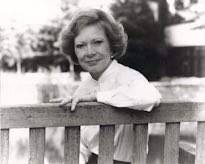 Eleanor Rosalynn Smith Carter
Humanities
1926
Georgia
2001
Eleanor Rosalynn Smith Carter
Humanities
1926
Georgia
2001

Eleanor Rosalynn Smith Carter
Former First Lady (1977-1981), Rosalynn Carter was an advocate for mental health, early childhood immunizations, human rights, conflict resolution, and health promotion worldwide.
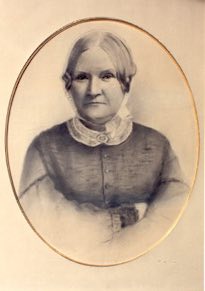 Lydia Maria Child
Humanities
1802
Massachusetts
2001
Lydia Maria Child
Humanities
1802
Massachusetts
2001

Lydia Maria Child
Author and social reformer, Lydia Maria Child spent a lifetime crusading for the abolition of slavery and supporting women’s suffrage. As the author of more than 40 books and the editor of eleven publications, she was always addressing the main issues of 19th century America.
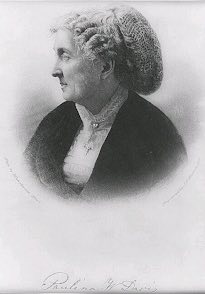 Paulina Kellogg Wright Davis
Humanities
1813
New York
2002
Paulina Kellogg Wright Davis
Humanities
1813
New York
2002

Paulina Kellogg Wright Davis
Born and raised in western New York, Davis headed the committee that organized the first National Women’s Rights Convention in Worcester, MA in 1850. She helped found the New England Women’s Suffrage Association and established Una, one of the first women’s rights newspapers.
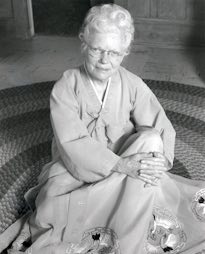 Bertha Holt
Humanities
1904
Iowa
2002
Bertha Holt
Humanities
1904
Iowa
2002

Bertha Holt
A pioneer in international adoption, Bertha and her husband adopted 8 Korean children in addition to their own 6 children. The Holt Adoption program, later called Holt International Children’s Services, was established in 1956 to help those interested in inter-country adoptions.
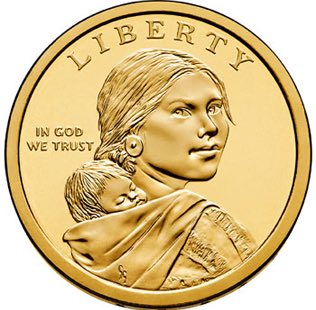 Sacagawea / Sacajawea / Sakakawea
Humanities
c.1788
Idaho
2003
Sacagawea / Sacajawea / Sakakawea
Humanities
c.1788
Idaho
2003

Sacagawea / Sacajawea / Sakakawea
A Shoshone woman who served as a guide to Lewis and Clark during their exploration of the American West, Sacagawea was an instrumental part in the success of this legendary Expedition.
